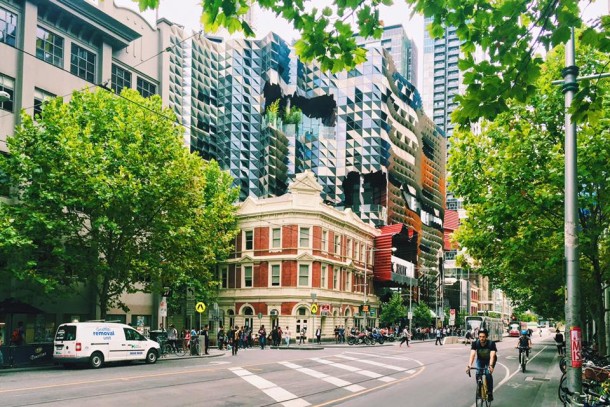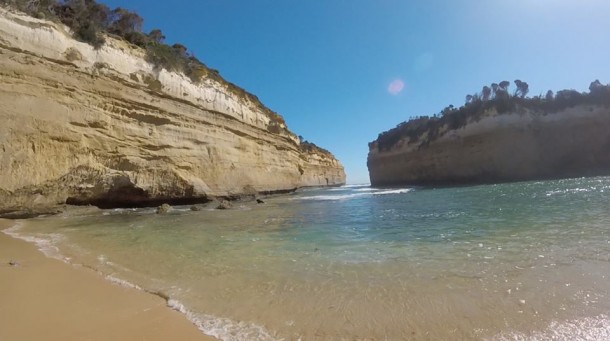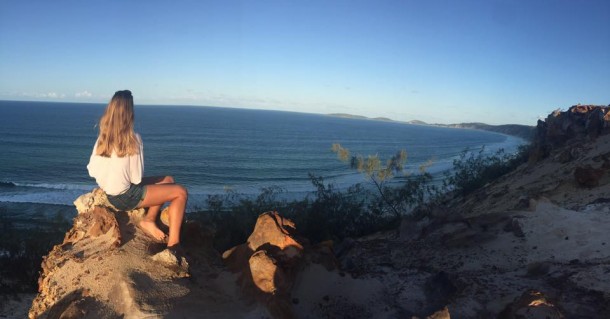When making plans to head way down under to Melbourne for a study abroad program, some things are obvious: bring an adaptor, exchange currency, prepare to completely flip seasons overnight.
But there are a few things advisors won’t tell you about studying in the world’s most livable city. Based on personal experience between February and June 2016 at RMIT University, these nine tips could very well save you a little bit of money and a lot of headaches.
1. Know which courses to take
Advisors may say the host university will help sort it out upon arrival, but it’s best to come in with at least an idea of which courses will transfer back to your home institution. Whether that means taking all elective credits or finding the major classes that work, having courses pre-selected saves hours of frustration and waiting.
2. Schedule carefully
In order to maximize time spent in Melbourne, and allow for some adventures elsewhere, try to squeeze as many classes as possible into a few days. Because Australians typically take each course for three hours once a week, it’s possible to wind up with Wednesday through Sunday off. This way, you can take longer trips out of town, or just enjoy more time in Melbourne.
3. Buy your fruits and veggies at the market
What beats fresh produce that’s cheaper than the local supermarket? Nothing. Oh, and Queen Victoria Market, located a short walk from RMIT and Melbourne University, also holds Wednesday night markets during summer and winter with music, dessert, and cool gifts crafted by local artisans.
4. Take advantage of the school-sponsored day trips
At RMIT, there’s an entire organization dedicated to taking students around Victoria, and the prices are always the best in town. Whether you want to learn to surf, road trip the famed Great Ocean Road, or go on a wine tour of the Yarra Valley, known for its Chardonnay and Pinot Noir, there are plenty of options. Most of the people on the tours are other exchange students, too, so there are plenty of opportunities to make friends.
5. Don’t waste money on booze
Australian alcohol is pricy, especially in nicer bars and clubs. A bottle of low-grade wine can be between $11 to $20, but if you head to Dan Murphy’s, you’ll find it for as cheap as $4. Student budget for the win!
6. Open an international bank account
If your bank doesn’t have an Australian branch, you may be tempted to open an account with a Melbourne bank, but it can be a hassle to deposit checks and a pain to close. It’s better to open an account back home that has a partner in Melbourne, like Bank of America. You’ll save yourself a fortune in foreign transaction and ATM fees while not having to deal with foreign banks.
7. Stock up on toiletries before you go
Makeup, shampoo, razors, and the like are also expensive in Australia, regardless of quality or brand. If you’re running low on any of these essentials, pick some up before heading to Melbourne.
8. Give yourself time
If you want to travel to another country while on exchange, give yourself a week minimum – two if you’re going somewhere big like New Zealand or Thailand. You can’t see an entire country in a few days, but you can see a city. If you want to take weekend trips to Sydney, Uluru, Perth, or most places on the east coast, you’ll be fine with three or four days.
9. Join a club
As long as you’re vaguely interested in the subject, it doesn’t matter what kind of club it is. Anime Society, sure! Ultimate Frisbee, fantastic. This is a great way to meet Australian students in a non-academic setting, where you can become actual friends, not just the group project kind. Most universities have an activities fair in the first few weeks of school, so it’s worth it to go check that out.
With these nine tips, you’ll be way ahead of the game to ensuring your time in Melbourne is the best semester you’ve ever had. You’re welcome, and oh, take me with you?




